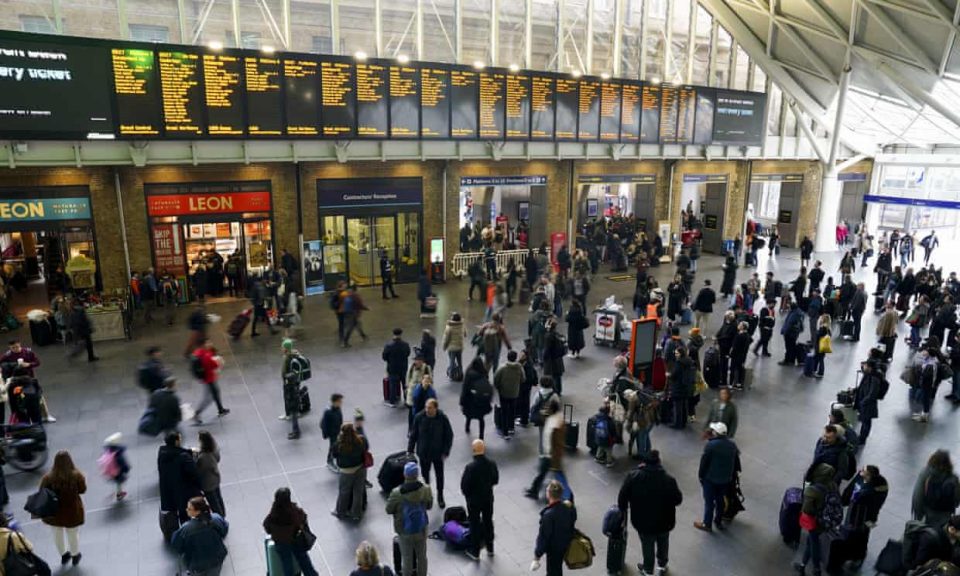Rail executives have faced criticism for seemingly belittling passengers by obscuring train departure details shortly before scheduled departures, supposedly to mitigate last-minute scrambles to the platforms.
The initiative, currently being tested at King’s Cross in London, stipulates that the last call for long-distance trains will occur four minutes prior to departure, with train information disappearing from the departure boards just three minutes before they leave.
Network Rail has asserted that this measure aims to prevent passengers from rushing to board. A poster promoting the initiative states, “This is to ensure everyone boards safely and helps maintain train schedules.”
However, many travelers have expressed their outrage, insisting that they ought to have access to information to make their own choices. Numerous individuals worry that this system might incite more last-minute rushing than it alleviates. They noted that platforms are frequently only announced moments before trains depart, meaning the new protocol may afford them mere seconds to respond to such announcements.
A user named Jonathan shared an image of the promotional poster on X, commenting, “This is extremely condescending, honestly. ‘We would rather you missed your train than hurried for it.’” He continued, questioning: “Who is better equipped to decide if the risk and effort to catch my train is worthwhile? You???!!!”
Academic and author Alexandra Wilson inquired, “How long before departure do they actually announce the platform? It’s often alarmingly late, leading to a rush.”
Tony West, a commuter traveling between London and Didcot, remarked: “Doesn’t this just mean everyone will sprint because they won’t know exactly when their train will leave?”
Jeremy Leggett, a rural policy adviser from Brighton, tweeted: “It’s impractical to remove information from displays just three minutes before departure, especially with connecting trains being commonplace, like Brighton’s east-west routes. This is both a poor policy and patronizing. @SouthernRailUK.”
MJ Simpson highlighted a potential flaw in the arrangement. He asked, “If I’m scheduled for the 5:25 and arrive at 5:23, will the departure board have no mention of the 5:25 even though it hasn’t departed yet? Is that accurate?”
In an interview with the Times, which initially reported on the initiative, York commuter Simon Watson said: “Trains run every 30 minutes, and being on the correct one can mean the difference between being home for my children’s bedtime or not. It should be my choice whether to sprint for the train.”
He added that it would compel passengers to rely on their phones for departure information, saying, “It’s surely better to rush while glancing at the departure boards than staring at your phone.”
Last year, chaotic scenes and persistent overcrowding at the nearby Euston station led Network Rail to implement a policy allowing early boarding for certain services. Passengers can now board around 40% of Avanti West Coast trains at Euston 20 minutes prior to departure, a response to concerns raised by London TravelWatch regarding safety amidst overcrowded conditions.
Despite these enhancements, travelers have noted that Euston remains a “nightmare.”


